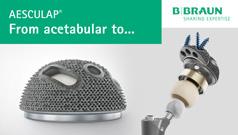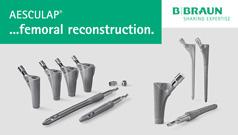Article of the Month
Removal of the infrapatella fat pad during total knee arthroplasty: does it affect patient outcomes?
Robert Moverley, Derfel Williams, Nikolaos Bardakos & Richard Field
Purpose The function of the infrapatella fat pad (IFP) is debated, but it is thought to have a biomechanical and biological role. Removal of the IFP during total knee arthroplasty (TKA) remains a matter of surgeon preference. This study sought to establish if removal of the IFP during TKA affected patient outcome.
Methods Excision of the IFP (not removed, partially excised, or fully excised) and outcome data (Oxford knee Score (OKS) and EQ-5D) were recorded for 1,401 patients (1,417 TKA). There were no differences in the preoperative scores between the groups.
Results OKS and EQ-5D one-year postoperatively demonstrated significantly (p<0.05 ANOVA) improved total scores with preservation of the IFP. Patients with the IFP preserved had significantly better OKS associated with rising from a chair, pain, limping, giving way, and pain interfering with work.
Conclusions This study suggests that preservation of the fat pad during TKA is associated with improved outcome. Surgeons routinely undertaking excision of the IFP should reflect whether this is clinically indicated and consider limiting IFP resection, if possible.
International Orthopaedics (SICOT)
DOI 10.1007/s00264-014-2427-6

















